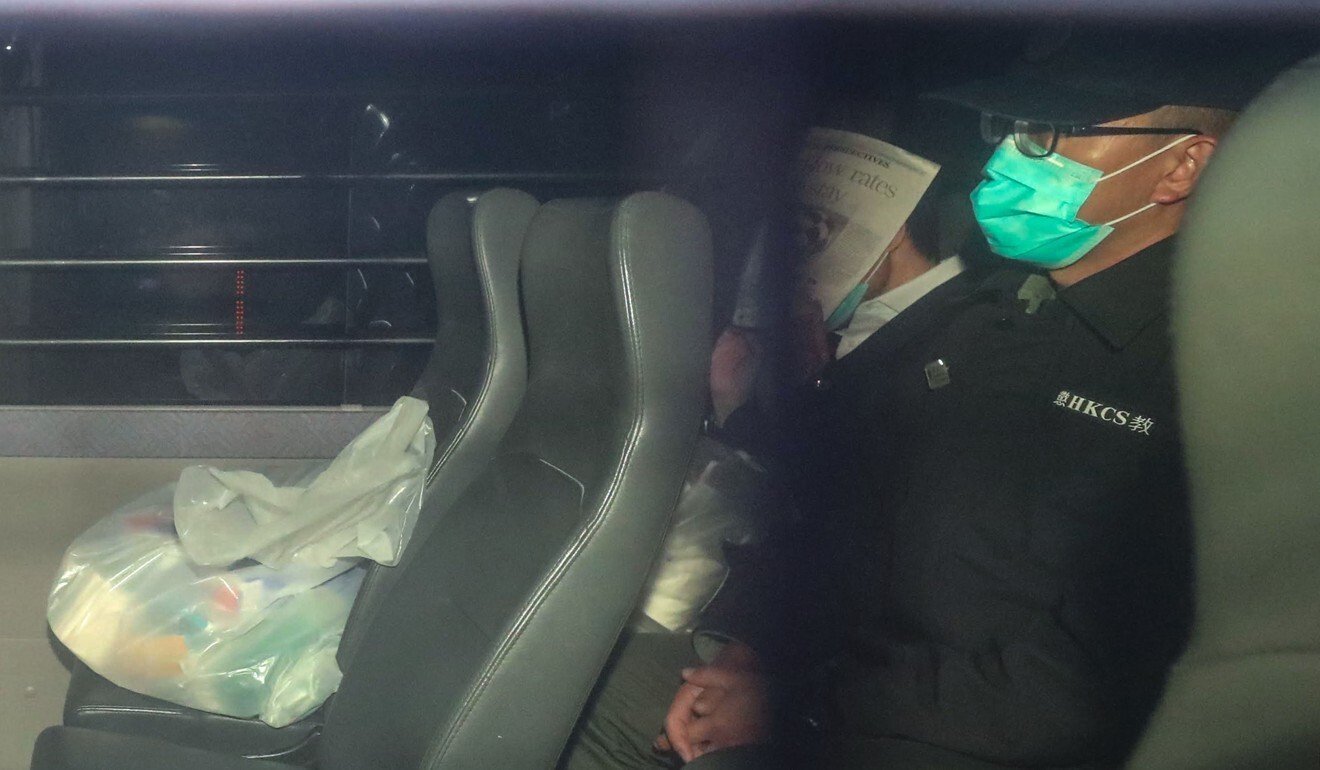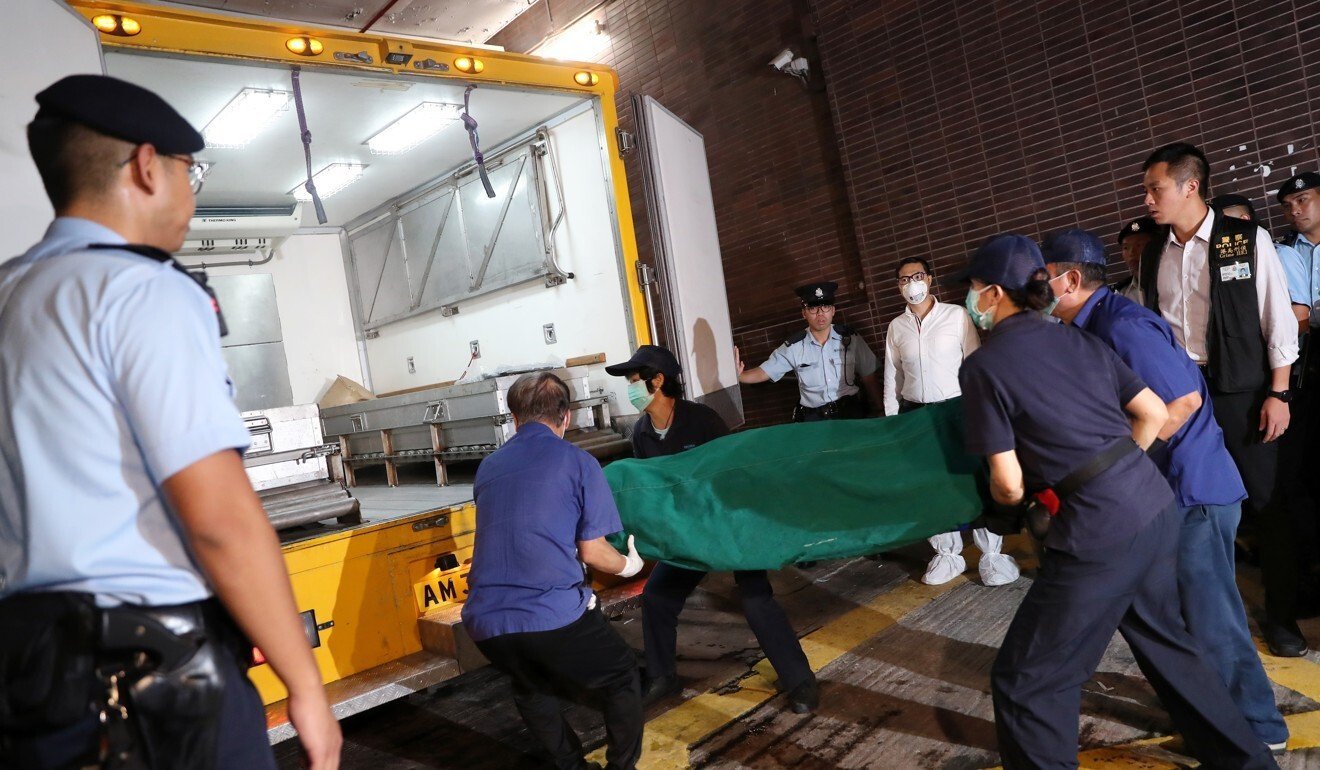Cheung Kie-chung was convicted last week despite bid to reduce charge to manslaughter because he was depressed at time of killing. At sentencing, judge says Cheung ‘cold-bloodedly killed his wife’ of 30 years.
University of Hong Kong professor Cheung Kie-chung was jailed for life on Thursday after being found guilty of murdering his wife two years ago.
Cheung, 56, was convicted last week in a majority verdict, despite his attempts to reduce the charge to manslaughter by reason of provocation or diminished responsibility, based on his depression.
The former associate professor of mechanical engineering had testified to killing his wife, Tina Chan Wai-man, 53, by strangling her with two electrical wires during an argument in the early hours of August 17, 2018, at their residence at Room 1601 of Wei Lun Hall, where he served as warden.
He also admitted covering up her death and concealing the body in a home-made wooden box moved to his campus office at Haking Wong Building for 11 days, and pleaded guilty to the charge of preventing the lawful burial of Chan’s body, punishable by seven years in prison.

But he denied intending to kill his wife, while his lawyers depicted him as a sad figure who suddenly snapped and lost temporary control after chronic psychological abuse allegedly inflicted by his wife.
Prosecutors have conceded that Cheung was suffering from an abnormality of the mind when he killed her, but maintained she was murdered in cold blood for financial reasons.
Cheung was known as an outspoken advocate of academic freedom but also a soft-spoken man popular with and respected by staff and students alike.
While serving as a member of the university’s governing council, Cheung criticised its decision not to appoint liberal law scholar Johannes Chan Man-mun to the position of pro-vice-chancellor in 2015. He was also understood to have defended then student union president Billy Fung Jing-en, when the latter was accused of leaking details of the confidential meeting that returned the controversial decision.
Hundreds of letters arrived at the court in the past week, offering glowing references to the professor’s generosity, dedication, and passion for his work, hall and students, as well as his selflessness and readiness to go the extra mile to see that others’ needs were addressed.
Madam Justice Anthea Pang Po-kam said the case was a tragedy but pointed out that murder was the gravest offence on the city’s statute books, for which there was only one sentence, mandatory life imprisonment.
“We are talking about the intentional taking away of another’s precious life,” the judge said. “No matter how gentle or caring he was before the killing, at the time, he cold-bloodedly killed his wife to whom he had been married for 30-odd years.”
The judge also sentenced Cheung to 28 months on his second charge, to be served concurrently with the life term, as she said his conduct had brought false hope to those who desperately wanted to locate Chan, and caused great distress when the body was discovered.
Cheung, who returned to court with a shaved head, appeared calm and waved goodbye to his friends and supporters in the public gallery before he was taken to Stanley Prison, a maximum-security facility.
In mitigation, defence counsel Graham Harris SC called the case tragic, and said it was one of the saddest cases he had encountered in more than 40 years as a barrister.
He observed that his client was not cruel, vicious or violent but a kind, generous and honest man of integrity who was a victim of chronic psychological abuse and mentally unwell at the time, and he did not plan the killing.
“These matters were never put forward as excuses,” Harris said. “But they might explain conduct that was wholly out of character.”

Harris said Cheung’s conduct after the killing was driven by panic and “an inability on the part of this man to face up to the enormity of what he had done”.
“The cover-up, we say, with respect, was naive,” he said. “Because this matter was bound to be discovered sooner or later.”
No fewer than 352 letters and signatories were sent from Cheung’s brother, school friends, students, alumni, professional colleagues and “eminent people in our community”, according to the counsel.
Harris also invited the court to consider whether this was an appropriate case for the judge to make a report to the chief executive, to address what he described as unusual features in this case for the Long-term Prison Sentences Review Board’s consideration.
The advisory body is tasked with reviewing sentences and making recommendations on possible remission and commutation, after those who have been convicted have served a certain period of a life sentence.















